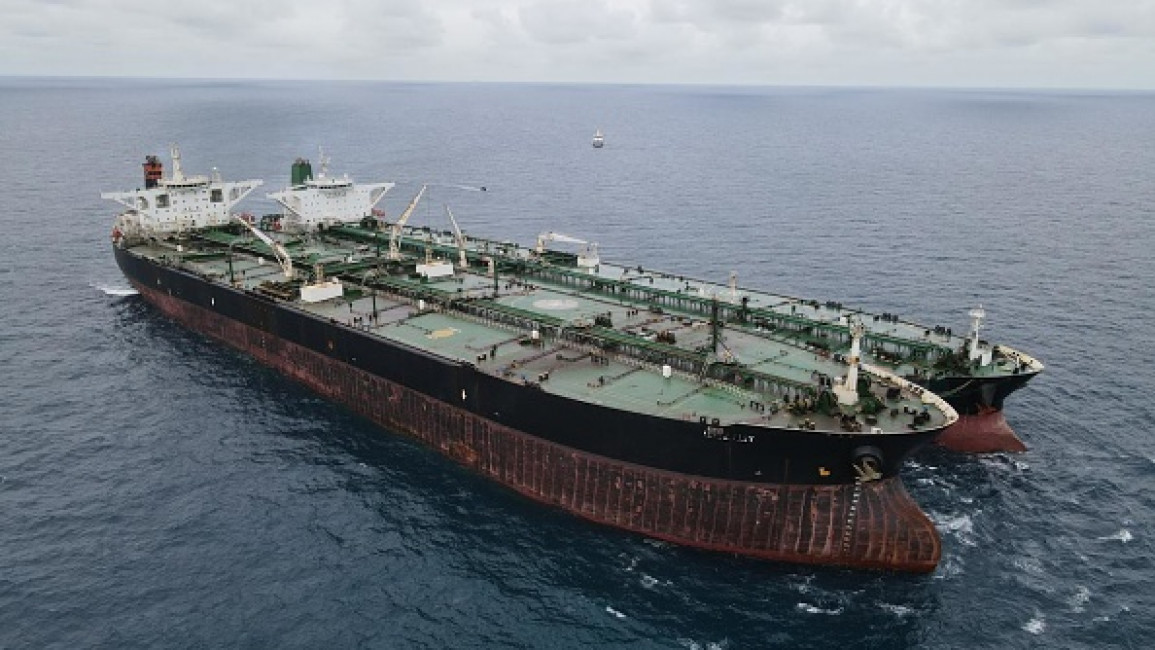Iranian oil unloads in Syria, headed to Lebanon
An Iranian tanker is unloading oil at the Syrian port coastal refinery of Baniyas, where it will be transferred by land to Lebanon, Tankertrackers.com confirmed on Tuesday.
The shipping monitor estimated the ship is carrying 33,000 metric tons of oil, and that it would require 1,310 trucks to transport the fuel to Lebanon.
In a speech on Monday night, Hassan Nasrallah, the leader of the Shia militia group Hezbollah, said that the ship would offload in Syria rather than Lebanon so as to "not cause embarrassment to the Lebanese state".
Iranian oil is under Western sanctions, so sending the tanker to Syria also allowed Hezbollah to avoid any confrontations with the western sanction regimes.
Nasrallah further specified that the fuel should reach Lebanon by Thursday, where it would be unloaded in Baalbek, in the Beqaa Valley, before being distributed to the rest of Lebanon.
He added that three more Iranian ships would arrive in the coming months, one of which would be carrying diesel. The fuel is to be distributed to state hospitals, the Red Cross, orphanages, and nursing homes, Nasrallah said.
Lebanon is currently undergoing an acute fuel crisis as foreign currency shortages hamstring importers' ability to bring in foreign fuel. Hoarding and speculating on rising fuel prices, as well as smuggling of petrol to Syria has also produced a shortage in the market.
All sectors of Lebanon have been affected by the fuel crisis, as much of the country relies on fuel to power private generators due to the faulty national power grid.
Hospitals, schools, and businesses have been forced to shut across the country due to a lack of power, and many homes only have the two to three hours of electricity that comes from the state every day.
Nasrallah initially announced that Iranian fuel would come to Lebanon on 19 August, and dared the US and Israel to try and stop the tanker. Soon, images on social media circulated of the Iranian tanker bursting through the word "USA".
On the same day of Nasrallah's August announcement, the US gave Lebanon the green light to start importing Egyptian natural gas and Jordanian electricity through Syria.
Though the deal had been reportedly in the works since July, Lebanon was waiting for an exemption to US sanctions on Syria to begin the gas and electricity importation project.
The timeline on the import project has not yet been decided, but Jordan's energy minister has said that it would take "several months to repair the electricity lines in Syria".
It is possible that the natural gas transfer could begin sooner if the construction of a natural gas pipeline between Syria and Jordan goes smoothly.
Lebanon is also set to receive 30,000 tons of fuel oil from Iraq this week, as part of a larger deal for the country to receive one million tonnes of oil from Iraq in the coming year.
Lebanon needs 3,600 megawatts of electricity per year to cover domestic demand, but only currently produces 700 megawatts.



